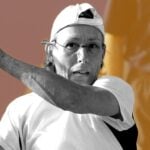Osaka: “Hopefully I play long enough to play a girl that said that I was once her favourite player”
After beating Jennifer Brady to win the Australian Open, a jubilant Naomi Osaka discussed her victory with reporters in Melbourne
 AI / REUTERS / PANORAMIC
AI / REUTERS / PANORAMIC
After winning her fourth Grand Slam title with a second Australian Open triumph on Saturday, Naomi Osaka discussed the enormity of her achievement, but not before she had the chance to drink some champagne. Here’s what she had to say.
Can you just give us an idea of what your emotions and feelings are like right at this moment?
Naomi Osaka: I feel a little bit funny after I took that sip (smiling). For me, my feelings, I’m really happy right now. I think this is a moment that I have been working for during the entire preseason. You know, it’s really weird when you get to that final point, you start trembling because you can think of the “what-ifs.” So for me I feel like I’m living in a “what-if” right now.
Also read: Cool Osaka downs Brady to win Australian Open title
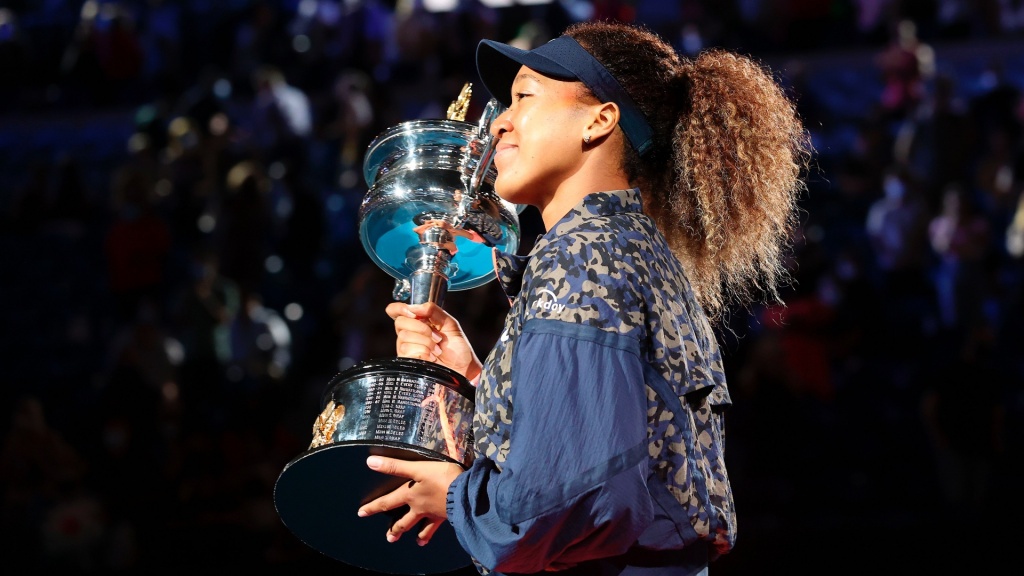
If your semi-final with Jennifer Brady at the US Open was one of your most memorable high-quality matches, how would you characterise tonight’s?
Tonight I felt like was more of a mental battle. I think we were both nervous. Of course, I can’t speak for her, but I was extremely nervous. I honestly just told myself before the match, I’m probably not going to play well. I shouldn’t put that pressure on myself to play perfectly, but just go out there and fight for every point. You know, the outcome is whatever it wants to be, but I can live with the fact that I tried very hard.
Why were you so nervous when she was the one in her first Grand Slam final?
I don’t know (smiling). Ask my nerves. Why was I so nervous? I think, you know, you want to win a Grand Slam. You know what I mean? You don’t go into a final wanting to be the runner-up. For me, I feel like every opportunity that I play a slam is an opportunity to win a slam, so I think maybe I put that pressure on myself too much, but honestly it’s working out in my favour right now.
Osaka : “I always resist the urge to yell before I go on the court”
Your first three slam finals were against players that were very experienced and had won majors, but were you conscious of a different dynamic coming up against Brady? You were the most experienced player and more of a favourite. Did that kind of factor into your mind? Did you feel a difference with that?
I was thinking about it this morning, you know. I have been in the position that she is in to go into the first slam. Of course I know the nerves that come with that. But then I was thinking on the other side, for me, I wonder if I’m expected to do better because I have been in slam finals before, so there was actually a lot of nerves with that. I would say I was conscious of it.
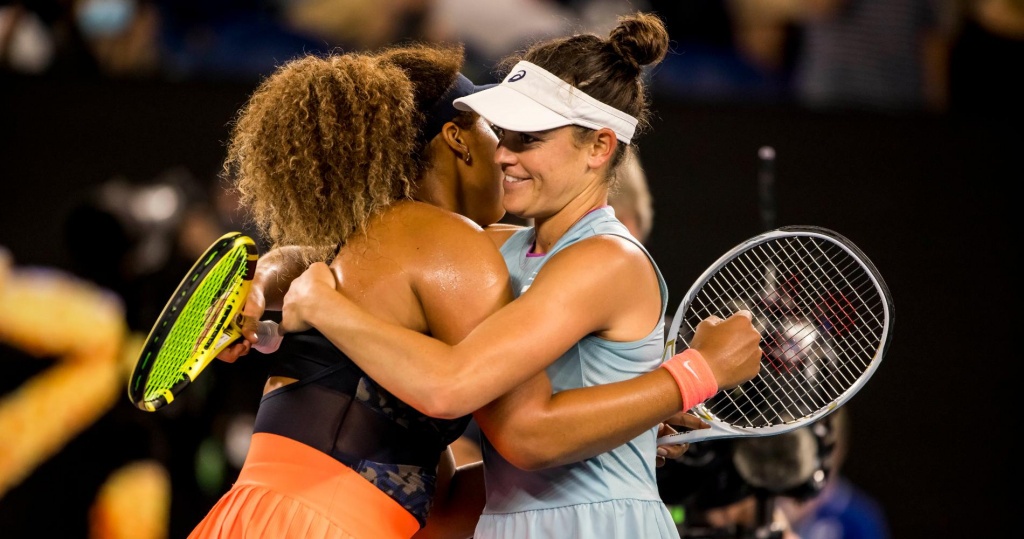
How do you deal with those nerves? If they are there, how do you channel it and be able to play the way you want?
Oh, how do I channel it? I always resist the urge to, like, yell before I go on the court. I guess now my, like, answer for it is just talking to my team. We talk like an hour before the match about what we want to accomplish, what my goals are, and what I want to leave the court feeling like.
You have won this and you have closed the gap a little bit again to the No. 1 ranking. How much of a motivation is that on top of the successes you have had at Grand Slams in your career?
Honestly, I don’t really think about the ranking at all. For me, I don’t play the most tournaments in the tour. You know, like, I just want to do well in all of the tournaments that I play. That’s my goal is to be consistent this year, not to have a huge drop-off randomly in the middle section like June, July, you know, how I usually do. But, yeah, I don’t want to think too much about the rankings. It will come if I play well, and that’s what I tell myself.
Osaka: “I have learned that is it’s OK to not be sure about yourself”
What’s the biggest thing you’d still like to achieve on or off the court that you haven’t already?
Me, I feel like the biggest thing that I want to achieve is — this is going to sound really odd, but hopefully I play long enough to play a girl that said that I was once her favourite player or something. For me, I think that’s the coolest thing that could ever happen to me. I think I have those feelings of, you know, watching my favourite players. Unfortunately I didn’t get to play Li Na, but, yeah, I just think that that’s how the sport moves forward.
Winning the US Open was associated with the Black Lives Matter protests because of your masks and names on them. Is there any broader message message that you’d like us to associate with this victory?
That’s actually really nice of you to ask that. Thank you. Honestly, for me, when everything happened in New York, I got really scared because I felt like it put me into this light that was a nonathletic light that I’ve never been in before. So I feel like there is a lot of topics that people suddenly started asking me about that I completely didn’t know about at all. For me, I only like to talk when I’m knowledgeable about the subject or at least know, like, one tiny grain of what I’m about to start talking about. So for me I came into this tournament just thinking purely about tennis.
Also read: Naomi Osaka: From a shy champion to a role model and leader
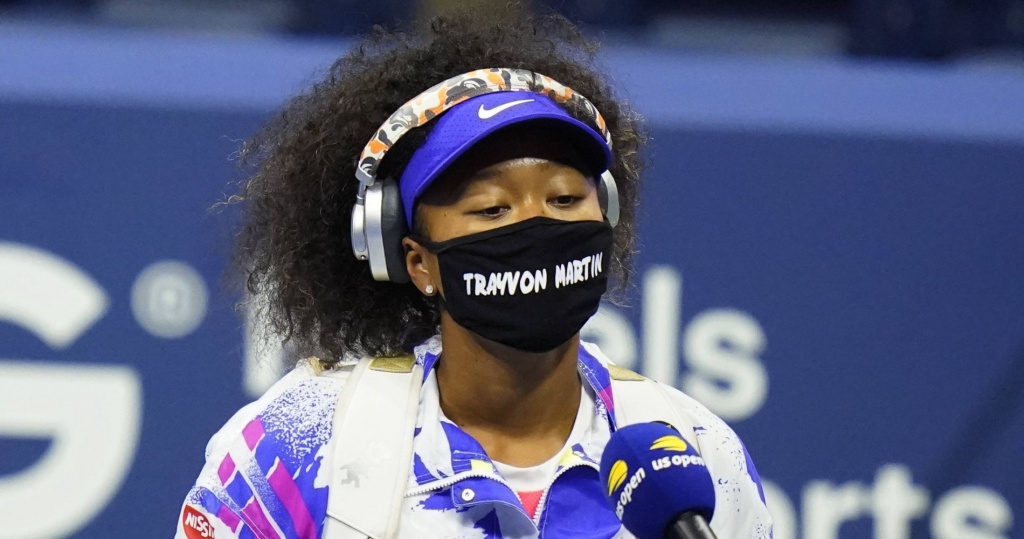
It’s been about two-and-a-half years now since your first major title. What do you think the biggest lessons you have learned about yourself are both on and off the court since then?
I think what I have learned on and off the court is it’s okay to not be sure about yourself. For me, I feel like I’ve always forced myself to, like, be “strong” or whatever. I think if you’re not feeling okay, it’s okay to not feel okay. But you have to sort of go within yourself and figure things out in a way. For me, that’s what I did during quarantine before US Open last year. That’s what I did when I was in quarantine here, too.
Osaka: “I have a really hard time thinking about tennis as if it’s just a solo sport”
You said you sort of consult those within your team, the people you call your family. What do you do there to overcome that feeling?
I mean, of course I talk to my team. They are the ones with me. They’re the ones that sort of see how I practice, how I respond to different things. Yeah, I call my family, my mom. My mom is funny. Every time I play a match she says, like, I wish you could just put more balls in the court. For her, the solution to winning a match is put balls in the court. She does not care about the pace or nothing (smiling). But, yeah, my mom always makes me laugh, and my sister. So it’s nice to call them. I think my mom is honestly just happy that I won. She’s hard to please (smiling).
You’re 4-0 in Grand Slam finals. Is there either a match or a moment you can point to that made you realize that you would have that sort of success in the most important matches? Do you think that’s something you’re born with or something you develop as an athlete?
I feel like for me I’m not sure if it’s something you’re born with, but I know that I didn’t play a lot of tournaments when I was a kid, so I’d always want to take the opportunity whenever someone was watching me, I’d feel like it was more fun that way. So maybe that’s how I developed wanting a crowd and wanting to play in front of more people. But I also think it’s because I watched a lot of Grand Slams growing up and seeing the crowds, seeing Arthur Ashe Stadium, seeing how it was in Australia and Rod Laver, and wanting to play in front of people and wanting to be, you know, the person holding up the trophy.
Speaking to other tennis players, they often describe themselves as needing to be selfish to succeed in the sport. With you, the other day you were saying you use yourself as a vessel for the hard work of everyone around you. So how do you explain your kind of unselfish approach to the sport?
Well, I think for me I have a really hard time thinking about tennis as if it’s just a solo sport. I know everyone says tennis is a solo sport, but I have always been surrounded by people that put in so many hours with me, and we do everything together. So I would say that — I wouldn’t say it’s selfish or unselfish. I would just say my mindset behind it is wanting to do everything together and wanting to share every experience that I can with the people that sort of do everything with me.
Osaka: “There is 500 other tennis players if you want to pick to be your role model”
You have so many young fans who, as you know, you’re very important to. Do you see that sort of as a responsibility or as an opportunity, and how conscious you are in moments like this of being a role model and what that means to you in your daily life?
I would say I guess in the past I felt it as a very strong responsibility, and I was also very scared and nervous of it, because for me I feel like people just see me on the court. That’s where most of the time I get the media attention. So even, let’s say I play a match and I slam my racquet, I would get very nervous about it, because I wasn’t sure if I would get very bad press over not being a great role model, should I have slammed my racquet, things like that. But, you know, over the years I have just realized the only thing I can do is be myself. There is 500 other tennis players if you want to pick to be your role model. So I feel it’s a really big honour that there is little kids that like me, that come to my matches and cheer for me. But at the same time, I don’t weigh it too heavily on myself, because I feel like I’m always, or I’m still growing as a person and hopefully they grow with me maybe (smiling).
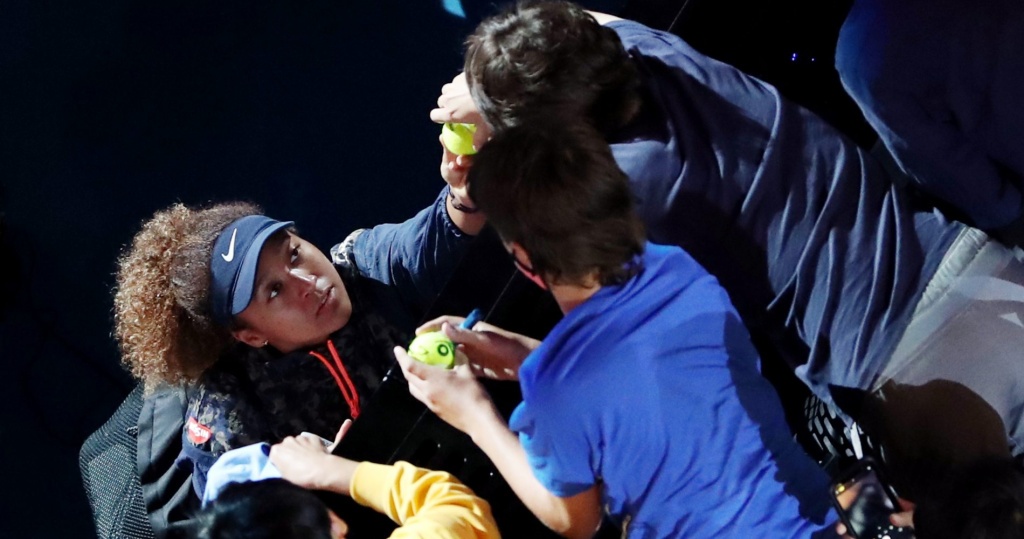
To what degree do you look at expectations as a burden? And to what degree do you look at expectations as a blessing?
The funny thing is I don’t look at expectations as a burden anymore. I feel like I’m at the point now where it’s something that I’ve worked for, you know. Like, people wouldn’t expect things from me if I hadn’t done things prior. If that makes sense. I feel like no one has expected things of me when I was younger, and now that I have kind of climbed up the ranks, of course there’s going to be more pressures, but I feel like also that’s motivation, because I also want to do better for myself, as well.
So what are the benefits of those expectations?
I think the benefits are it’s just like motivating, like pushing me to do better. Like if someone expects me to do something, I would expect myself to do better than what they expect. So many “expects” in one word or one sentence. For me, it’s sort of like a challenge.
I’d like to know if you still remember how you lost a match, because it’s more than one year. What would happen if you would lose one match? Would it be a great pain or somehow you would expect it has to happen?
I don’t expect to win all my matches this year. That’s honestly somebody can give me a medal, anybody can give me a medal if I win all my matches this year, but I don’t think it’s possible. You know, tennis players, we go through ups and downs. But for me, I only hope that my ups and downs are less drastic this year. I do remember what it feels like to lose a match, very vividly. I remember it here, and I remember how I was feeling and what my mindset was. Honestly, it still makes me sad to this day, it’s quite a lingering memory.




